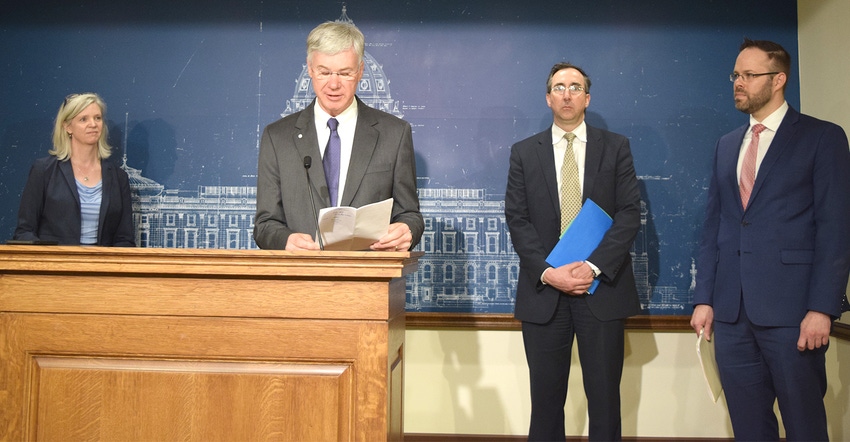
After hosting nearly two dozen rural resident listening sessions over the last two years, the Minnesota Farmers Union recently issued its “2018 Rural Voices Discussion” report, along with suggested action items for the governor and state lawmakers to consider.
MFU gathered input from 350 rural residents last year and 450 people this spring and compiled their responses. MFU then provided a “call to action” list for state lawmakers and the governor that covers five general topics: health care, agricultural issues, infrastructure, hunger issues and listening to rural voices.
Based on rural residents’ comments, MFU summarized an action plan calling for:
• Immediate legislative hearings on the proposal to allow anyone to buy into MinnesotaCare. MFU said action must be taken to cut down on health insurance premiums and deductible costs. During the 2018 listening sessions, farmers across the state told personal stories of annual health care costs ranging from $25,000 to $45,000. “If we are serious about keeping families on farms, we need to be serious about this health insurance cost crisis,” the MFU report noted.
• The governor and the Legislature to work closely with farmers on issues that affect them. MFU said both the governor and lawmakers need to ensure that farmers have input into proposals that affect them, particularly in discussions regarding buffers, road ditch mowing, water quality, elk farming, rural labor issues and other environmental matters. Farmers need to be at the table because different practices work in different areas, and programs that are adopted need to make sense both agriculturally and environmentally, MFU noted.
• Actively addressing rural infrastructure issues. This includes support for additional broadband funding, a major public works program to provide funding for building or rebuilding rural roads and bridges, and support for renewable energy programs written to benefit family farmers and rural communities rather than utilities.
• Actively addressing hunger issues. MFU called for support of programs that address hunger, particularly the state’s Market Bucks program, which provides funding to double people’s Supplemental Nutrition Assistance Program benefits when they buy food at Minnesota farmers markets; the state’s Good Food Access Program, which helps build support and access to local groceries; and food-shelf initiatives and implementing the programs outlined in the Minnesota Food Charter.
• Holding listening sessions and public hearings throughout the state on issues that impact family farmers and rural communities. “The biggest lessons learned in both 2017 and 2018 can be summarized in this way: Rural Minnesotans need more respect and communication,” the report stated. “Too often rural residents do not feel respected by their government. Inadequate communication is cited as one aspect of this lack of respect.”
MFU concluded that the governor, lieutenant governor, state commissioners and legislative committees should schedule outstate listening sessions on topics such as regulations, health insurance costs, ambulance and rural hospital needs, broadband, renewable energy, dairy problems, land access, beginning farmer programs, succession planning, health and human services issues, and hunger issues including closed grocery stores and assisting farmers markets that benefit farmers and rural communities.
“These listening sessions should be scheduled for when farmers are not planting or harvesting, and held in rural areas,” the report noted. “We urge that all listening session information that is written, recorded or otherwise captured be made public, and that input from farmers be cited in any conclusions or proposed regulations.”
The MFU report is available at mfu.org/files/2230.pdf.
About the Author(s)
You May Also Like






